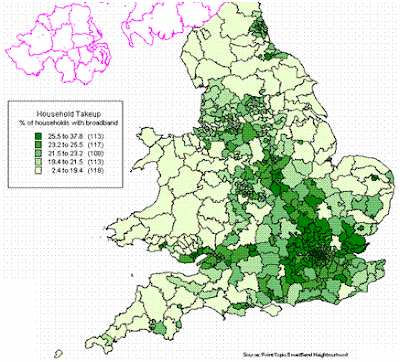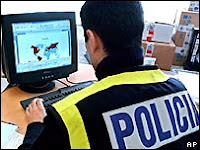Preventing crime by using ICT very common in today’s society, ICT had a tremendous affect on the way we live today. The information age has changed crime and how it can be prevented massively. Police stations now that their own websites and computers, this makes it easier for citizens to contact them and interact with them. Police has seen the ICT can be use to their advantage and therefore started to use it wisely. They now use different technologies available around them to make their jobs easier and more effective, it makes it quicker for them to prevent crimes and catch criminals. The development ICT created more crimes available; today they are now electronic hacking or robbing bank electronically, emails and internet frauds and variety of viruses. Crime has now become global due to the information age. With new crimes occurring the government had to make changes and make new laws to prevent these types of crimes.
Technologies used
Have you ever watched CSI and wondered, wow how did they solved this crime? Well obviously, CSI is not real and some technologies they use is not really as well but wouldn’t it wonderful if we actually have all of those technologies? There is nothing to worry about; police in today’s society have number of technologies to give them an extra hand.
Every police station will now have computers available. This is where they will be processing and storing all of data collected from the criminals and other offenders; they could also use computers to get more data or details about a person, furthermore they could write reports and store reports which make it more organised instead of having written reports that you could lose easily. Computers have now become a vital part of police stations; it is their main storage of information. It is also now possible to report minor crimes over the Internet, this give the person who reported the crime a feeling of secure and safety.
Programmes that can be stored or downloaded in computers are also being use in police stations. Holmes2 is a computer programme created to help keep vital evidences and it also reduces paperwork. Furthermore it can easily identify a missing person if given the right descriptions, it will then match automatically. If a match is found or confirmed, the police can then easily contact relatives. This show how new technologies can make police’s job more sufficient and quicker. Police also uses the internet to communicate with each other; an example is the Criminal Justice extranet. It’s a network that allows police and other organisations to communicate and share documents securely and safely.
Before, computers were not available at all or it wasn’t as developed which means that polices have to write their reports and keep it in their stations, this is hard and long work. Additionally, this means that losing reports is easy which could lead to more problems and more work.
Digital radio is probably the most common technology or most well known technology that police uses. But they have now updated it and digital radios now has encrypted transmission to allow officers to communicate securely, this means no hacking and the sound is very clear to hear.

Identifying a person, criminal or victim was difficult back then; there were no technologies available to help. The technologies available today has immensely changed therefore it means that identifying a person is much quicker. One type of technology that is used today is biometrics. It easily identifies people using physical using physical characteristics such as fingerprints. Biometrics works by recognizing patterns that are unique to individual. Biometrics is used to identify fingerprints, each one of have different finger prints or patterns on our fingers. Usually, fingerprints were taken by covering fingertips with ink and pressing it down on paper, but now fingerprints can be scanned electronically. This means that the image that is collected can be visually seen easily and clearly, the computers will then be used to match the prints against other fingerprints in their database. Fingerprints have been used to identify people for a long time. Polices are also beginning to use palm prints in addition to fingerprints.
DNA Analysis is another one that has become important for identifying both criminals and victims. Each every one of us has unique DNA apart from identical twins, sample of DNA sample like body fluid, tissue or hair that is found in a crime scene can be use to compare with other criminals or other suspects
CCTV cameras are now also can be use to identity a person especially if it’s used with facial recognition system, with many CCTV cameras around there is no way a criminal would get away easily without being seen.
Automatic Number Plate Recognition is also new technology that helps police. Its cameras can tell the police within seconds whether a vehicle has been stolen or is known to be involved in crime or if it doesn’t have tax etc. Instead of contacting back to the police station to ask if a car is stolen the police will use ANPR to detect it, they can then easily and quickly react and catch the car.
In the future, many more technologies will develop and grow. All criminals or bad people should be scared by this thought and I’m pretty sure that sooner or later indentifying criminals or even arresting them will be done with no hassle at all.
This is an article discussing on how we can protect children, they were talking about how we can use technology to help and lower the risk of children being killed, raped etc.
Police National Computer (PNC)
PNC is a computer system used by law enforcement organisations all over UK. PNC provides and allows quick and accurate research that includes ANPR, the PNC scans thousands of number plates alerting police to any that are needed to be caught. Vehicle online descriptive search or VODS, it allows users to search the vehicles database such as post code, registration etc. there are many more that PNC could do.

PNC is still and continually improving or upgrading making sure that development is what police needs or required. One of the most recent introductions has included the National Firearms register and mobile data checking.
There are many benefits of using PNC:
- Can be accessed 24/7
- Allows sharing of information through a secure network
- Quick, efficient tool for investigating crimes
New crimes are developed due to the changed in technologies and the development of ICT. These crimes include cyber crime, phishing, hacking, viruses etc. With new crimes occurring, new laws are introduced to intervened and stop these crimes.
Cyber crimes
Phishing- this is probably one of the common cyber crimes at the moment. Phishing is an e-mail fraud in which the scammers sends out a legitimate looking email in an attempt to gather personal and financial information from recipients. Phishing e-mail messages, website and phone calls are all designed to steal money but you can detect phishing by looking for spelling mistake and bad grammar, if the email is threatening you etc.
Computer Hacking- this is probably the most popular form of hacking in today’s society but hacking also has many other forms, such as phone hacking. Computer hacking is the process in which where someone gains or try to gain access to a computer system without the owner’s permission.
Spam- the voluntary sending of emails that is illegal or unlawful in some areas in an attempt to force the message on people who would not choose to receive it. Most spam is commercial advertising; there are 2 types of spam, the email spam which targets individual users with direct mail messages and the Usenet spam which targets or aimed at "lurkers", people who read newsgroups but rarely or never post and give their address away.
Fraud- is the deliberate act of deception intended for personal gain or to cause other person damages. There are many different forms of fraud, some may be facilitated by using computer systems this include bank fraud, identity theft, extortion and theft of classified information.
Laws to stop cyber crimes
Computer Misuse act
Computer Misuse act is an act of the UK Parliament in 1990. It’s design to stop computer/internet crimes as hacking into other people’s computer or system, helping a person to gain access to protected files on someone else’s computer.
It’s split into sections
- Accessing computer material without permission with intent to commit further criminal offences. EG hacking into bank’s computer and wanting to put more money into your account
- Changing or altering computer data without permission. EG writing a virus to someone else’s data
Data Protection Act 1998
This act covers 8 data protection principles:
- Personal data shall be obtained only for lawful purposes
- Personal data shall not be transferred to a country without adequate protection
- Personal data shall be processed fairly and lawfully
- Personal data shall always be accurate and up to date
- Personal data shall be adequate, relevant and not excessive and other data needed may be used
- Personal data shall not be kept for longer than necessary for that purpose or purposes
- Rights of individuals, you should have the right to have data about you removed
- Appropriate technical and organisational measures shall be taken against unauthorised or unlawful processing of personal data














